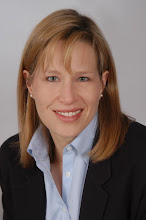The world continues to change, and not always in the same direction. Just as we are moving to an environment of more regulation in the wake of the crises of the last two year, someone is trying to yank the wheel of the regulatory machine and pull it in the other direction, toward less regulation.
Michael Carvin and Noel Francisco are two Washington lawyers attempting to topple the mighty Sarbanes-Oxley Act, also known as Sarbox, or SOX. For an explanation of Sarbox, see my previous post.
Why attempt such a thing?
They are representing Brad Beckstead, a CPA in Nevada, who is not happy with the Pubic Company Accounting Oversight Board (PCAOB). The PCAOB was created under Sarbox to regulate auditors. The intent was to not have a rerun of the Enron scandal, when auditor Arthur Andersen performed a less than rigorous audit of Enron.
One of the intentions of Sarbanes-Oxley is to audit the auditors. Makes a lot of sense in theory. What Brad Beckstead says is that the Sarbanes-Oxley act was written for the big four accounting firms and Fortune 500 companies, and for smaller public companies the cost of audit and compliance is prohibitive.
No less than Ken Starr, the U.S. Solicitor General under President George H.W. Bush, makes the argument that there are many problems with Sarbanes-Oxley as it stands now. This call for adjustment of Sarbanes-Oxley does not come only from the political right. Senator John Kerry, a Democrat, introduced a bill in 2006 to reduce the regulatory burden on companies with a market capitalization less than $75 million.
Back to the BusinessWeek article.
The impetus for Beckstead to challenge Sarbox happened in 2004, when in a “grueling” audit in 2004, the PCAOB “picked apart his business”. He had to close his auditing practice because of the cost of compliance. Fortunately, this situation was noticed by the Free Enterprise Fund, an advocacy group aiming to reduce government and promote economic growth.
Carvin and Francisco argue that the PCAOB, currently appointed by the SEC, should be appointed by the President. The main problem is that the PCAOB is not under the control of the President; it is appointed by the Securities and Exchange Commission (SEC). Why does this matter? Because of the great economic impact of the PCAOB. It does not even have congressional oversight. Defenders of the PCAOB say it is not as powerful an organization as its detractors suggest.
But – if Sarbox is overturned, what about the post-Enron regulating spirit? Will it all fall? Former chairman of the SEC Harvey Pitt said that the Sarbanes-Oxley act was part of a national response to the accounting scandals in the early 2000s. Some have pointed out that if Sarbox is reexamined, what about other appointments? Sure enough in recent weeks, we have seen interest in reexamining the whole situation regarding the Federal Reserve.
In the wake of the Enron and other accounting scandals, the hope was that another debacle happening at publicly owned companies and affecting innocent ordinary people would not happen again. Instead, we ended up with the housing boom and bust, the subprime mortgage mess and the subsequent financial crisis affecting all of us in the United States, and extending far beyond our country’s borders.
There are some who argue that in this time of great recession, Sarbox is functioning as a giant drag on the economy for mid-size to smaller public companies. The cost of compliance has multiplied from the days before Sarbox, many public companies have chosen to delist, private companies have chosen to finance with debt instead of equity, and worst of all, the act has not prevented further wrongdoing.
But former Senator Sarbanes, former Representative Oxley and former PCAOB chair Mark Olson all defended Sarbox and argued that internal controls have strengthened, fraud has been prevented and investors were given more confidence. (Whatever confidence investors had, I’m sure has evaporated during the recent financial events!) Brad Beckstead, who prompted the Free Enterprise Fund to action, calls the Sarbanes-Oxley act a barrier to entry for small and startup companies because audit and compliance costs are so high. Even the Government Accountability Office (GAO) reported that the costs of compliance have increased by approximately eight times. Eight! Common sense tells us smaller companies must be having a difficult time in this recession; consider the result if they could cut some costs.
Unrelated to Sarbox, in Fall of 2009 a Democrat, Senator Dodd, is calling for a reexamination of the financial regulatory system. Seems like they always find some way to jump into action after a crisis, but never before. However, in true Democrat fashion he wants to put into place something even bigger and more powerful. Regarding the Federal Reserve, BusinessWeek points out the Fed governors have fixed terms and the President has limited ability to remove them. Somehow the American people don't seem to be bothered by that fixed system.
Should small companies be exempt from Sarbox? Beckstead certainly thinks so. Even John Kerry, a Democrat, thinks so. Carvin and Francisco seem to have their work cut out for them, decreasing regulation in a regulation-happy administration. Stay tuned for more news on December 7.

This is not the time to be stifling or otherwise inhibiting the growth of small businesses and start ups, the source of so many jobs in America. On the otherhand, we don't need any more Enron-like situations. I am not familiar with the Act, but does it need to be wholly overturned? Plenty of federal and state statutes have exemptions for small companies. How about creating some exemptions for companies with less than say 50 employees?
ReplyDelete